About Us
Our Vision
Flourishing communities filled with dignity and hope
Mission Statement
To be the facilitators of change that assist in bringing hope to and enabling the impoverished to rise above their circumstances by educating, equipping, capacitating and empowering them to draw out the best within themselves and thereby effectively uplifting the community and combating poverty.
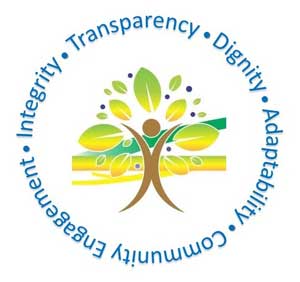
Values
Integrity will be upheld in all dealings with stakeholders and beneficiaries.
Transparency will be displayed in all activities which are open to inspection by any interested party.
Dignity is preserved as the right of every individual.
Adaptability to the ever changing environment.
Community Engagement is the foundation upon which all our work is built.
Follow the steps of our journey…
Abounding Hope is an organization that reaches the underprivileged in our local communities of the Ray Nkonyeni municipality of the UGU district district.

With a God given vision, our work began in the community of kwaMasinenge on the 10 April 2011, where we took the initiative and started to investigate how we could help and improve the lives of those living in the kwaMasinenge informal settlement. After examining several options, it was determined that a garden project would be the most relevant starting point in developing the relationships and trust required to proceed with any large-scale projects within the community.
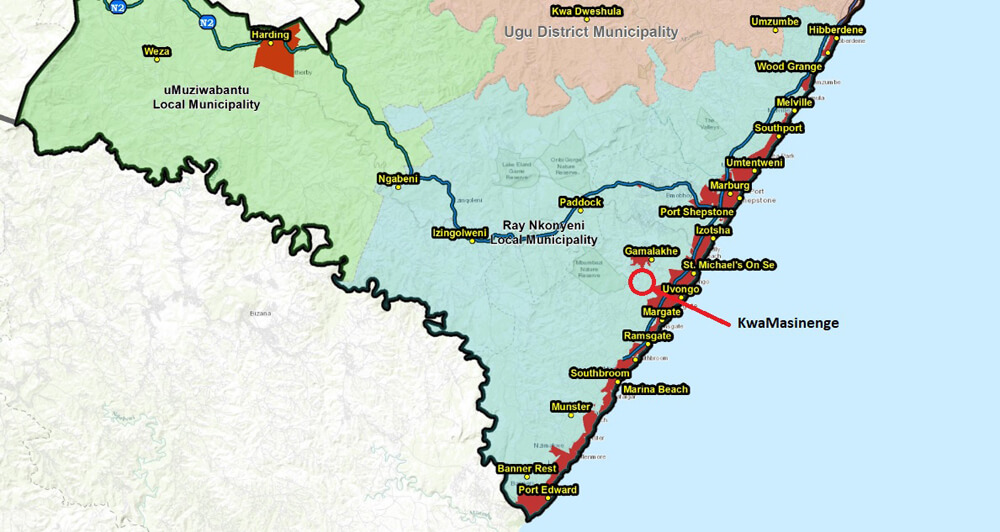
The Garden Project…
The Garden Project began on the 14th July 2011, and our long-term plan was to use the vegetables from this garden to assist the soup kitchen in Masinenge for the TB and HIV infected people, and to eventually also feed the most-hard pressed in the community.
The garden project ran successfully for two years through the selling of the vegetables thanks to the support of Siyavuna Development Centre (SDC), who agreed to use us as one of their Co-operatives.
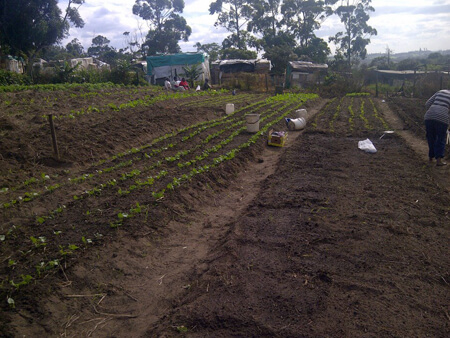
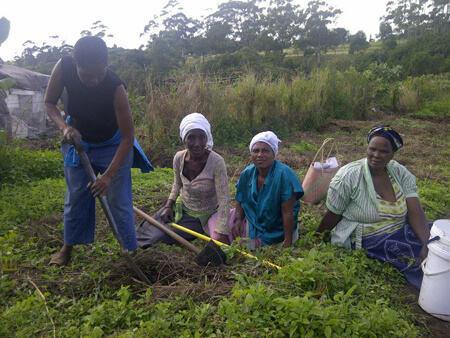
Our produce was 100% organic and we became part of the broader community farmer’s co-op.
After two successful years, the stipend for the volunteers ceased and as further funding for the project was difficult to attain, the garden project was put on hold and later restarted on a micro scale to supplement the Soup Kitchen which it currently still does to this day.
The Soup Kitchen…
After the closure of the garden project due to lack of funding, Shirley focused on ministering door to door within the community, which at this time was possible due to the good relationships she had established there.
During her visits it became apparent that one of the biggest challenges facing the community was lack of good nutritional support, especially for the infirm and critical cases, (those suffering from HIV, tuberculosis, diabetes and cancer).
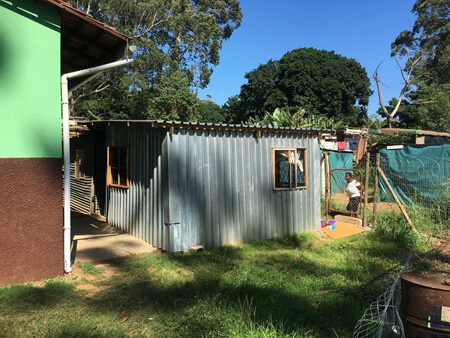

Before the garden project had started, a soup kitchen had existed which at that time was defunct, in so much that it only operated sporadically when donations were made available.
Shirley took the initiative to rebuild and reorganize the soup kitchen with the support of local businesses and donors who continue to provide material support, as well as financial support from interested stakeholders who supply the basic food staples. The soup kitchen currently has been running efficiently since 2014.
In 2017 the soup kitchen was expanded and the services of a permanent volunteer cook was acquired. Initially it provided 30-50 meals a day, however since the devastation of the COVID lockdown, that number has increased to over 90. Thus it provides one meal a day, 5 days a week.
The soup kitchen pilot project has been an incredible success, and other than the occasional need, it is well supplied and stocked.
Due to the pilot project’s success, and the fact that it has been successfully running for 3 years, we are planning to do an impact study to assess the feasibility of reproducing it in other communities, where it is desperately needed.
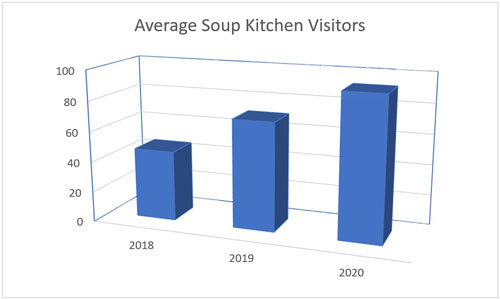
The Creche…
Another massive challenge within the community was the lack of early childhood development. The community had a creche, but it had no ECD program, no formal government support, no trained teachers and was operating as a day care.
In early 2014 an ECD program called brain boosters was implemented and the necessary training for two volunteer teachers was provided. The Brain Booster program is designed to be interactive with the parents and the family as a whole. Sadly, shortly after implementation the main teacher passed away due to illness and the entire program reverted back to an informal day care. In spite of this we still continued to support the creche with a feeding scheme so the children wouldn’t go hungry.
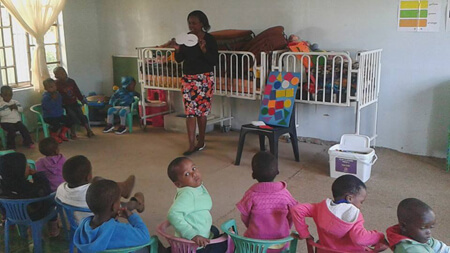
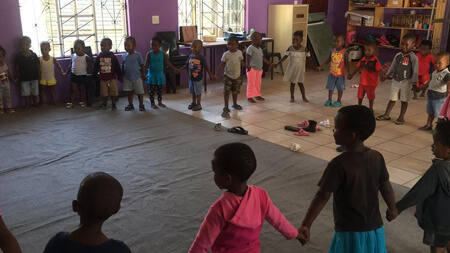
In August 2016 Abounding Hope became officially registered as a non-profit organization which drew the attention of a single large donor who was very interested in the upliftment of both the creche and the greater community.
Thus in 2017 we were able to acquire a teacher with two assistants who, after training, once again started implementing the Brain Booster program.
The creche was registered as its own NPO in 2018, is registered with the Department of Social Development, and is managed by a creche committee that consists of members of the community.
In the latter part of 2018 it was decided to implement an ECD awareness campaign within the greater community of Masinenge to determine among other things, how many children came from single parent homes, how many were not in some form of schooling, and how many families were headed by a minor.
There was a lot of positive interest shown by the community, resulting in two parental workshops. The outcome was a definite understanding of the importance of ECD for young children.
The creche has been running successfully for 3 years now. We have expanded to accommodate 4 volunteer teachers who receive continual training to offer the best support and care for the children. Both parents and children have responded with overwhelming positivity to the improvements at the creche. Among these are now flushable toilets on a septic tank system, an upgraded junglegym with swings and a sandpit.
We plan to upgrade the outbuilding on the premises in order to separate the different age groups to make it more conducive to learning. The property is also now fully fenced with an security gate in accordance with the stipulations of the Department of Social development.
Fortunately during the COVID19 lockdown, no children or staff succumbed to illness. Even though the attendance dropped drastically due to lockdown regulations, we were still able to provide the children with 2 meals a day. We are now operating at capacity once again.
Another impact study will be done in the foreseeable future.
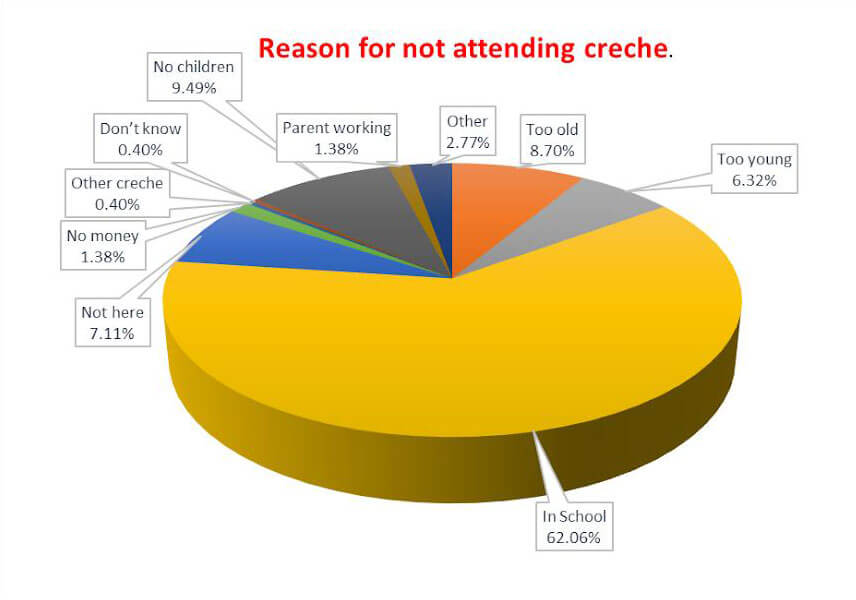
The Documentary…
Due to the success of our organization we have had the privilege of being able to create a documentary on the amazing work we are doing..
We are premièred this documentary at our AGM on the 30th October 2018.
It was very well received and since then a great deal of interest has been generated for our organization.
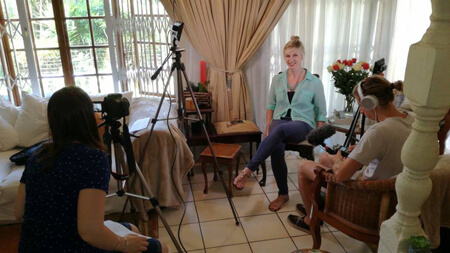
Governing Board

Basil Woodhouse

Thomas Barry

Phiko Mbangata

Jan Oosthuizen

Lulu Mkhiza
Executives

Shirley Oosthuizen

Roger Jasson
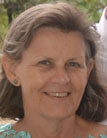
Avlon Ferreira

Philiswa Lwana
Volunteers

Nokuthula Mosea
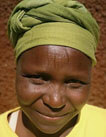
Thozama Sifici

Henry Mkhiza
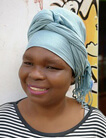
Portia Mcunu

